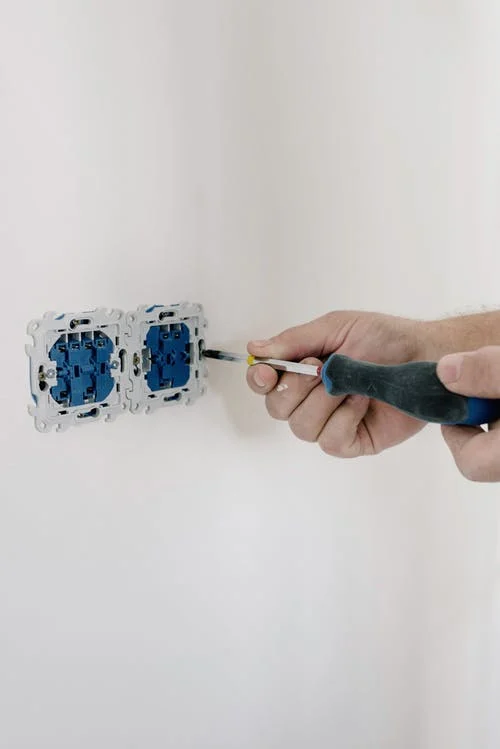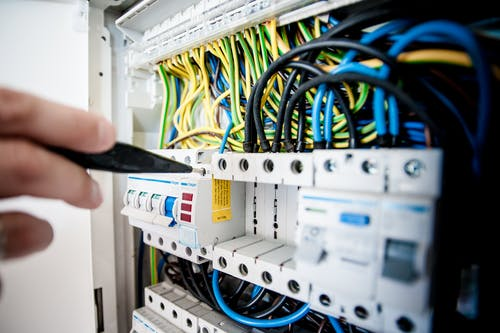There’s no kidding about the fact electricity powers our lives in numerous ways. In this age and day, going just a single day without electric power in your home or business premises can be so tormenting. However, faults happen from time to time, and you have to survive several hours without a power supply if you don’t have a backup power plan such as solar or generator. This is not to forget that some electrical issues can actually cause safety risks. If you are keen enough, you must have heard of a few cases of electrocution or electricity-related fires that cost lives or tons of dollars in damage.
In addition to causing inconveniences, some electricity issues can be dangerous enough to cause injuries if not fatalities alongside huge losses. This is among the many reasons to be extremely keen on your electrical systems. Whenever issues arise, how you handle them can make a huge difference.
Here are three things you can and should do when having electricity issues at home.
1. Call a Professional Electrician
While there are some areas in the house where we can take the role and be the “professional”, electricity should not be one of them. As mentioned earlier, some electricity problems could easily be a matter of life and death, making it crucial to utilize a professional. As vividly explained at www.mandinelectrical.com.au/, utilizing professional electrician services comes with numerous benefits. This is basically because they are highly trained and skilled in their field, enough to address all your needs. Whether you need some electrical modifications done or you have an electrical emergency, some of the benefits of working with pro electricians include the following:
- It spares you from safety risks
- It helps avoid costly damages
- You can have your issues fixed fast and save time
- They can help you save money from your energy bill
- They can help protect the lifespan of your electrical appliances
Clearly, calling a professional to your rescue will gain you more than just a few benefits. Furthermore, they are equipped with the right skills, equipment, and tools you may not even know, let alone have them. Before you think about fixing your power issues DIY, it is best to think again and consider hiring a pro instead.
2. Switch Off At the Mains
The warmth, comfort, and light brought by electricity into our homes are just on another level these days. However, short-circuits and other electrical faults can pose a danger to you, your property, and all your belongings. Whenever there’s an issue such as unexplained dimming of lights, flashing, strange noises, or weird behavior in how your appliances use electricity or operate, it is best to switch everything off before anything else.
If need be, have it done at the main switch just to be safe. When there is an issue, it may be hard for you to determine the core cause. Therefore, you may also want to switch off all the appliances in the house to protect them from electric-related damages.
After switching off, it can be easier for you to identify where the problem is. It could be a circuit overload, a tripping circuit breaker, electrical surge, or electrical shorts. These are just the possible problems, which your electrician can easily diagnose and fix.
3. Consider Replacement and Upgrades
The electrical system is among the most important systems in any house or building. Over time, however, some parts of the entire system give in to the pressures of time, usage, wear, and tear. Fuses blow, wires get tattered, and sockets crack. Sometimes the electrical components in your home may not be ideal enough to handle your current power supply needs as you introduce more appliances. In such scenarios, you may start experiencing electricity issues, necessitating you to consider upgrades or replacements.
When it comes to this, always go for quality electrical components with the guidance of a professional electrician. They last longer and give better service as compared to the cheap ones. Go for the right voltage, proper wiring, and ask your electrician for advice on devices that could cause power surges.

Finally, you need to make sure you have enough outlets in your home to avoid circuit overload, which is a common cause of circuit breaker tripping and flickering lights. If you can, minimizing the use of extension cords is advisable to ensure a healthier electrical system flow while reducing the risk of trip and fall injuries. With these three tips, you can add convenience and safety to your life while saving time and money when it comes to matters of electricity in your house.


